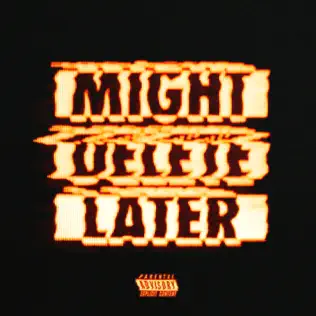When Drake made his hip-hop debut last year with Thank Me Later, critics were skeptical of the Young Money R&B crooner. Exchanging his teenage persona, Jimmy Brooks, from the Canada-based television show “Degrassi” for a life of luxury and grandeur, Drake became an instant love-or-hate figure in mainstream hip-hop, solidifying himself among a new wave of R&B songwriters like that of Frank Ocean, Trey Songz and Chris Brown.
Thank Me Later was impressive in that behind the more conventional themes of hip-hop music (power, sexual prowess and fame), there was a vulnerability to Drake.
There were narratives of loneliness, the burdens of success and the ambivalence that comes when accommodating to a musician’s lifestyle. Take Care continues where its predecessor left off but shows Drake in a more refined and improved demeanor.
Opener “Over My Dead Body” flourishes with airy, soulful keys from guest contributor Chantal Kreviazuk, while Drake’s conversation-like rapping style provides an introspective story about the expectations placed upon him.
The title song oozes with dance club bass thumps, upbeat piano and staccato drums produced by The xx’s Jamie Smith. Samples from the recently deceased spoken-word soulman Gil Scott-Heron accompanies Smith’s vibrant production, while guest vocalist Rihanna acts as Drake’s cupid by responding to his desires of love and affection.
Take Care is an improvement from Thank Me Later: in deciding between rapper and singer, Drake chooses the latter for most of the album, which lends itself to the album’s overall lush and alluring production. His songwriting has become deeper and reflective. There are moments of arrogance, sadness and tenderness, all of which Drake manipulates in various ways.
“Marvin’s Room” and its drunk-dial narrative is one of many examples of how Drake’s self-pity can be strangely beautiful. “Fuck that n—- that you love so bad, I know you still think about the times we had,” Drake says with a delivery marked with bitterness and anger. It is Drake’s tell-all approach to his music that makes it so captivating.
His half-Jay-Z, half-Kid Cudi persona highlights a constant, internal battle to be recognized and accept that recognition.
Although the album is dominantly gloomy, guests like label mate Nicki Minaj, hip-hop don Rick Ross and king of groove Stevie Wonder help lighten up the album. “Villa on the water with the wonderful views, only fat n—- in the sauna with Jews,” may go down as one of Ross’ most hilarious freestyles as he provides a lighthearted chuckle on “Lord Knows.”
Drake’s second album is embodied in this lyrical line from “Doing It Wrong”: “We live in a generation of not being in love.” Similar to fellow hopeless romantic Lykke Li, Drake’s sadness is a blessing. It allows Drake to reveal what remains dormant in his psyche, resulting in revelations that serve as a constant reminder of the pains of unrequited love.
Printed on Tuesday, November 15, 2011 as: Drake incorporates slew of guest musicians, relies on singing over rapping in 'Take Care'




















